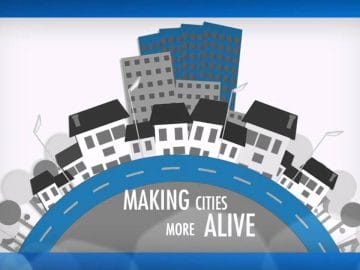As the world’s population continues to grow, urban centers face increasing demands on their infrastructure. The concept of smart cities has emerged as a promising solution to address these challenges, employing technology like the high-quality casinos of BigWinWall.com and data-driven strategies to optimize resources and improve the quality of life. Engineers play a critical role in shaping urban infrastructure and making smart cities a reality.
Understanding Smart Cities
Smart cities are urban areas that leverage technology, data, and connectivity to optimize infrastructure, services, and resources. This approach is focused on improving the quality of life, increasing sustainability, and enhancing economic development. Key components of smart cities include:
- IoT (Internet of Things) devices and sensors
- Big data and analytics
- Connectivity and communication networks
- Smart public services
- Sustainable energy and resource management
Engineers and Smart City Infrastructure
Engineers play a central role in the design, implementation, and maintenance of smart city infrastructure. Their expertise is critical in ensuring that urban environments are efficient, sustainable, and capable of meeting the needs of a growing population. Key areas of engineering involvement include:
- Transportation and Mobility: Engineers design smart transportation systems that minimize congestion, reduce emissions, and enhance accessibility. This includes connected traffic signals, smart parking solutions, and public transportation monitoring systems.
- Energy and Resource Management: Engineers develop innovative solutions to optimize energy consumption and minimize waste. This includes smart grids, energy-efficient buildings, and resource recovery systems.
- Connectivity and Communication: Engineers are responsible for building and maintaining the communication networks that underpin smart city infrastructure. This includes fiber-optic networks, wireless systems, and IoT platforms.

Challenges and Opportunities for Engineers
While the concept of smart cities presents significant opportunities, it also poses challenges that engineers must address:
- Interdisciplinary Collaboration: The development of smart city infrastructure requires collaboration among experts from various engineering disciplines, including civil, electrical, and computer engineering. Engineers must be able to work together effectively to develop integrated solutions.
- Data Privacy and Security: The increased connectivity and reliance on data in smart cities raises concerns about data privacy and security. Engineers must develop secure systems and networks to protect sensitive information and ensure public trust.
- Sustainability and Resilience: As climate change and natural disasters pose increasing threats, engineers must design infrastructure that is sustainable and resilient to environmental challenges.
The Future of Smart Cities and Engineering
As urban populations continue to grow and technology advances, the demand for smart cities will only increase. Engineers will play a crucial role in shaping the urban landscape and driving innovation in this rapidly evolving field.
- Artificial Intelligence and Machine Learning: AI and machine learning will continue to play a significant role in optimizing smart city infrastructure, enabling predictive maintenance, advanced traffic management, and more.
- Urban Planning and Design: Engineers will increasingly collaborate with urban planners and architects to create cities that are not only smart but also livable and attractive.
Conclusion
Engineers are at the forefront of the smart city revolution, using their skills and expertise to create innovative solutions that address the complex challenges faced by modern urban environments. As technology continues to advance, the role of engineers in shaping urban infrastructure will only become more crucial. By embracing interdisciplinary collaboration, staying current with technological advancements, and prioritizing sustainability and resilience, engineers can drive the evolution of smart cities and ensure a brighter, more efficient future for urban populations around the world.












